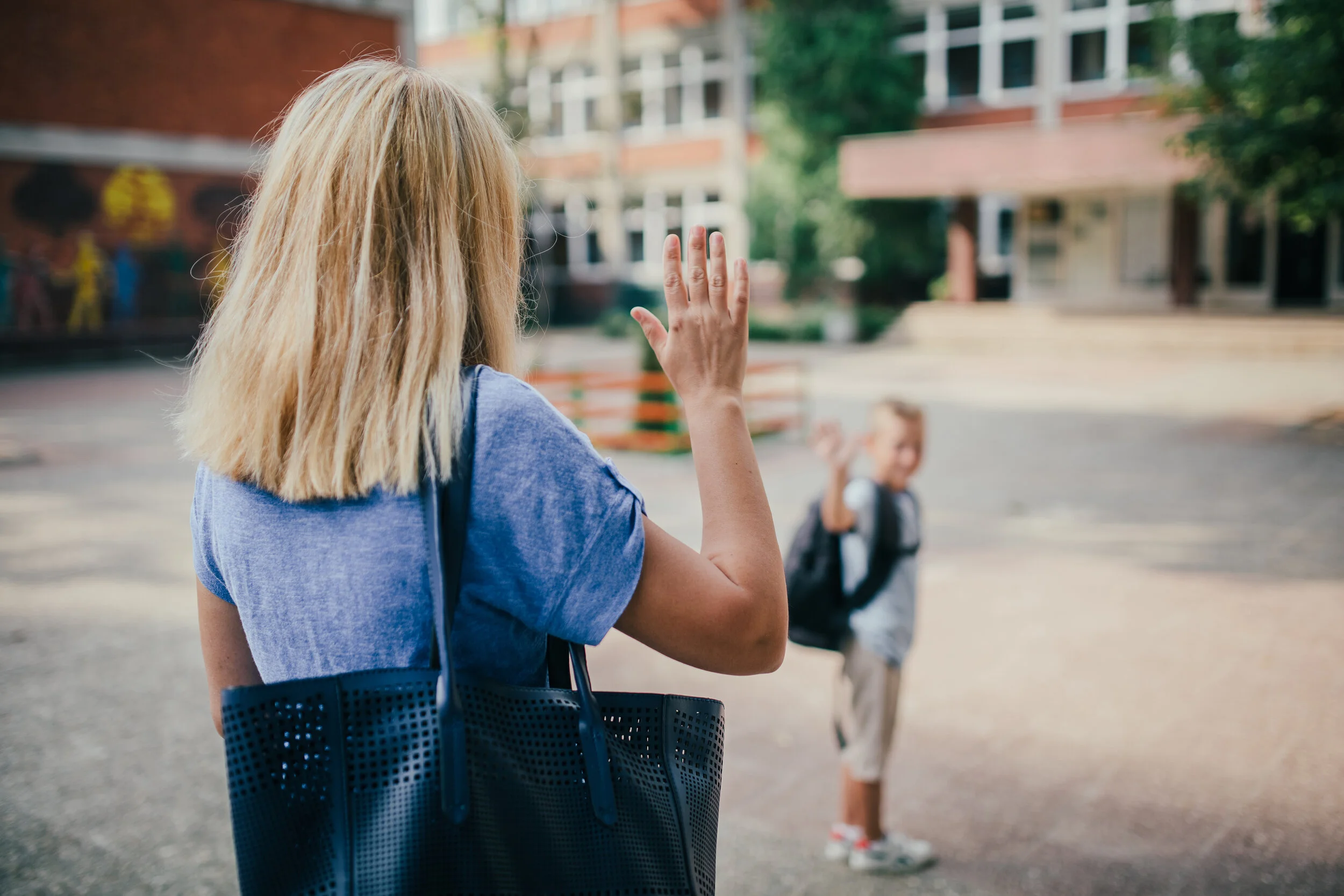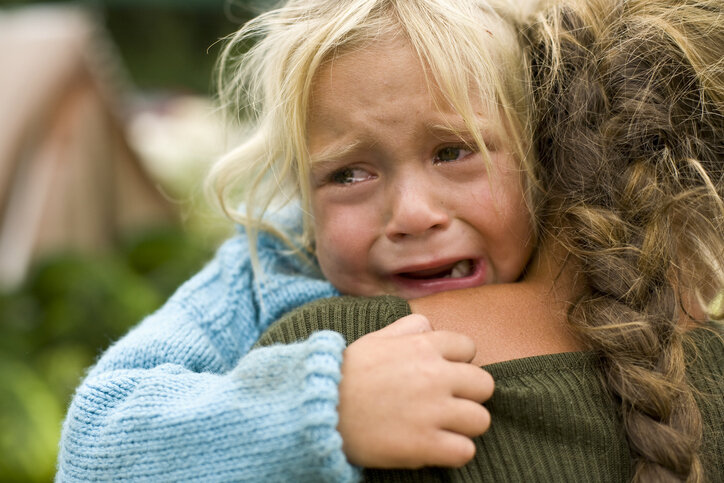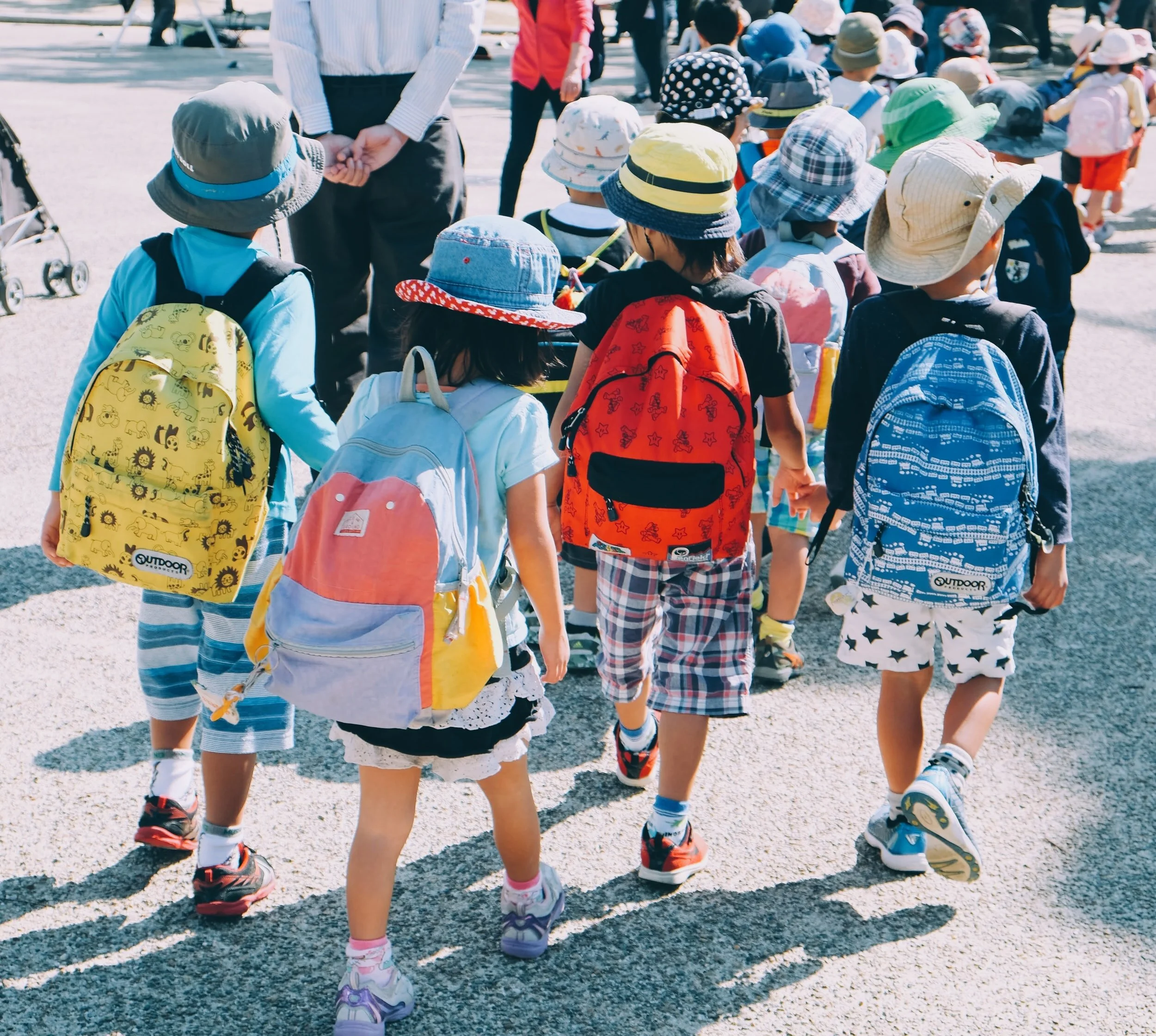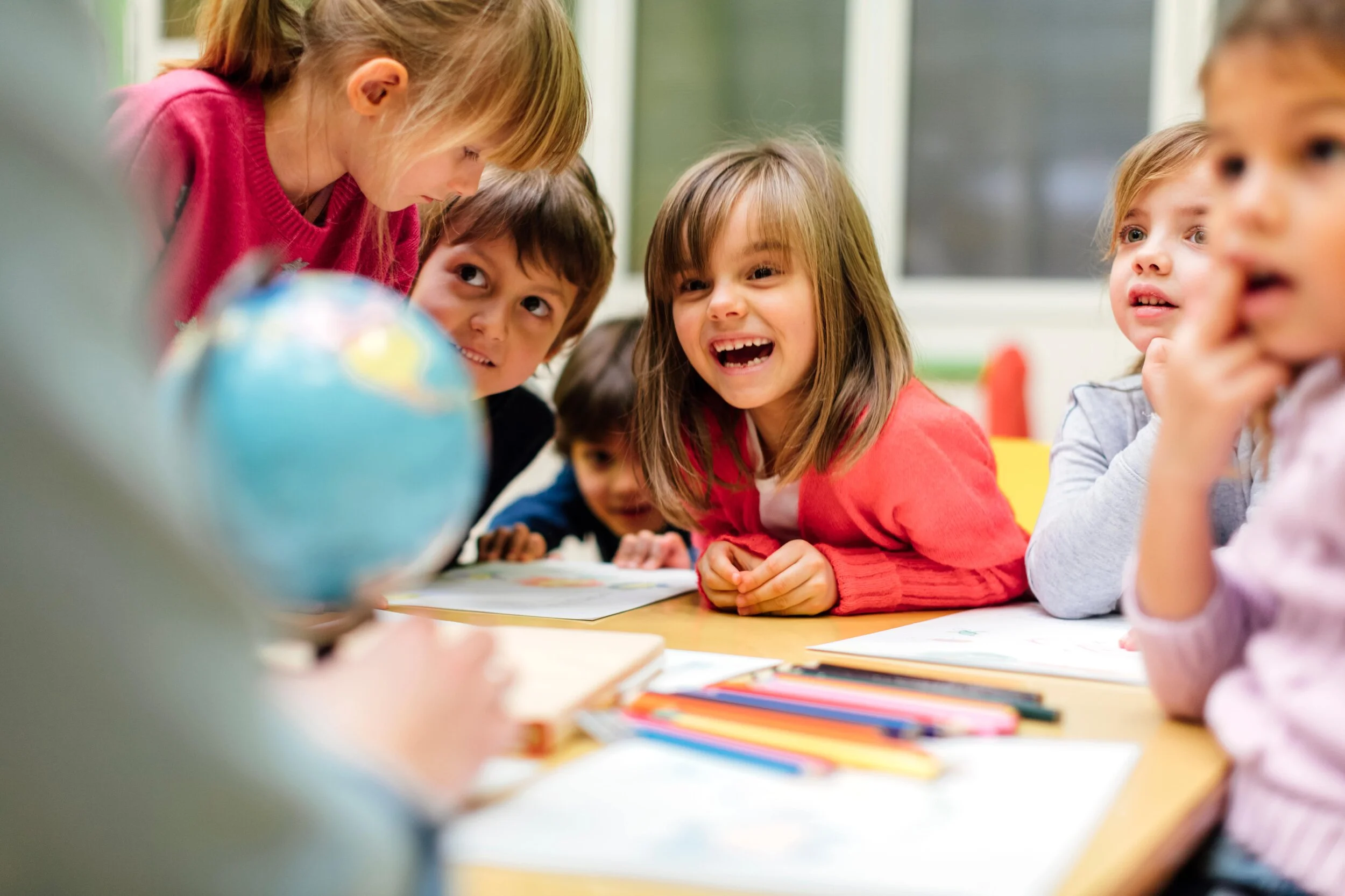
Ngā whakawhitinga atu ki tua i te whare kōhungahunga
Transitions out of ECE spaces
What works?
Titiro whakamuri, kōkiri whakamua.
Look back and reflect so we can move forward.
Moving into kura/school is the final transition in the ECE journey. For many tamariki in Aotearoa it takes place immediately following their fifth birthday (although it is not compulsory to start kura/school until age 6 in Aotearoa New Zealand).
Transition to kura/school is viewed as a significant milestone in Aotearoa New Zealand culture as tamariki move to more formal learning spaces than they may have experienced before. Kaiako and new entrant teachers working together with tamariki and their whānau, can make this process more of a progression than a disruption to their social and emotional wellbeing. Looking back to move forward at this time allows time and space to celebrate the tamaiti, and all that they bring to this next phase of their learning. They are not beginning their learning here, but continuing it, so there will be traces of what has gone before to reflect on in moving forward. Kaiako play an important role in creating positive feelings about what is to come, and supporting new entrant teachers to understand what has gone before.

“Expectations of them change… you know they’re expected to carry their own bags, they’re expected to manage their own food, they’re expected to get themselves dressed, they’re expected to learn, they’re expected to remember to drink. I mean as a society we expect so much of our five year olds, but they were four yesterday - you know- and now they’re five. And because they’re five they’re expected to dress themselves and wear a uniform and comply and sit quietly on the mat and put their hands up and, she does. She’s a good girl”
- Parent, after school entry.
Mōhiotanga: Before the first day transitioning out of ECE
Mātauranga: On the first day transitioning out of ECE
What do tamariki have to say?
Listen to Macy offer her advice on what would make transition to school process work well for tamariki.

After the first day
There will be many more transitions to come as tamariki move through their schooling and, indeed, their lives. Generating positive early transitions can play an important role in influencing how future changes are approached as either learning opportunities or threats. Kaiako have a significant role in co-creating this transition narrative and nurturing the positive dispositions about learning that tamariki can take with them on this journey.
Resources for further reading
Aline-Wendy, D., & Hilary, F. (2006). Informing Transitions In The Early Years. McGraw-Hill Education (UK).
Cameron, M. J. (2018). Assessing four-year-old children’s learning: New Zealand early childhood teachers’ purposes, practices and knowledge : a thesis presented in partial fulfilment of the requirements for the degree of Doctor of Education at Massey University, Manawatū, New Zealand [Thesis, Massey University].
Dean, J., & Delaune, A. (2019). Supporting young gifted children through transitioning from early childhood to school. He Kupu: The Word.
Delaune, A. (2019). Supporting young gifted children through transitioning from early childhood to school. He Kupu: The Word.
Ministry of Education. (2020). Transitions in Early Learning.
Ministry of Education. (2017). Te whāriki: He whāriki mātauranga mō ngā mokopuna o Aotearoa: Early childhood curriculum.
Perry, B., Dockett, S., Petriwskyj, A. (Eds.) (2014). Transitions to school: International research, policy and practice. Springer.
Peters, S. (2014). Chasms, Bridges and Borderlands: A Transitions Research ‘Across the Border’ from Early Childhood Education to School in New Zealand. In B. Perry, S. Dockett, & A. Petriwskyj (Eds.), Transitions to School—International Research, Policy and Practice (pp. 105–116). Springer Netherlands.
Peters, S., Hartley, C., Rogers, P., Smith, J., & Carr, M. (2009). Supporting the transition from early childhood education to school: Insights from one centre of innovation project. Set: Research Information for Teachers (Wellington), 3, 4–11.
Peters, S. (2010). Literature review: From early childhood to school. Education Counts.
Rosewarne, S., White., E.J., Wright, L. (2010). Exploring transition through collective biographical memory work: Considerations for parents and teachers in Early Childhood Education. Australian Journal of Early Childhood, 35(3), 24-32. https://doi.org/10.1177/183693911003500304
The education hub. (2021). Transitions.
Timperley, H., McNaughton, S., Howie, L., & Robinson, V. (2003). Transitioning Children from Early Childhood Education to School: Teacher Beliefs and Transition Practices. Australasian Journal of Early Childhood, 28(2), 32–38.























